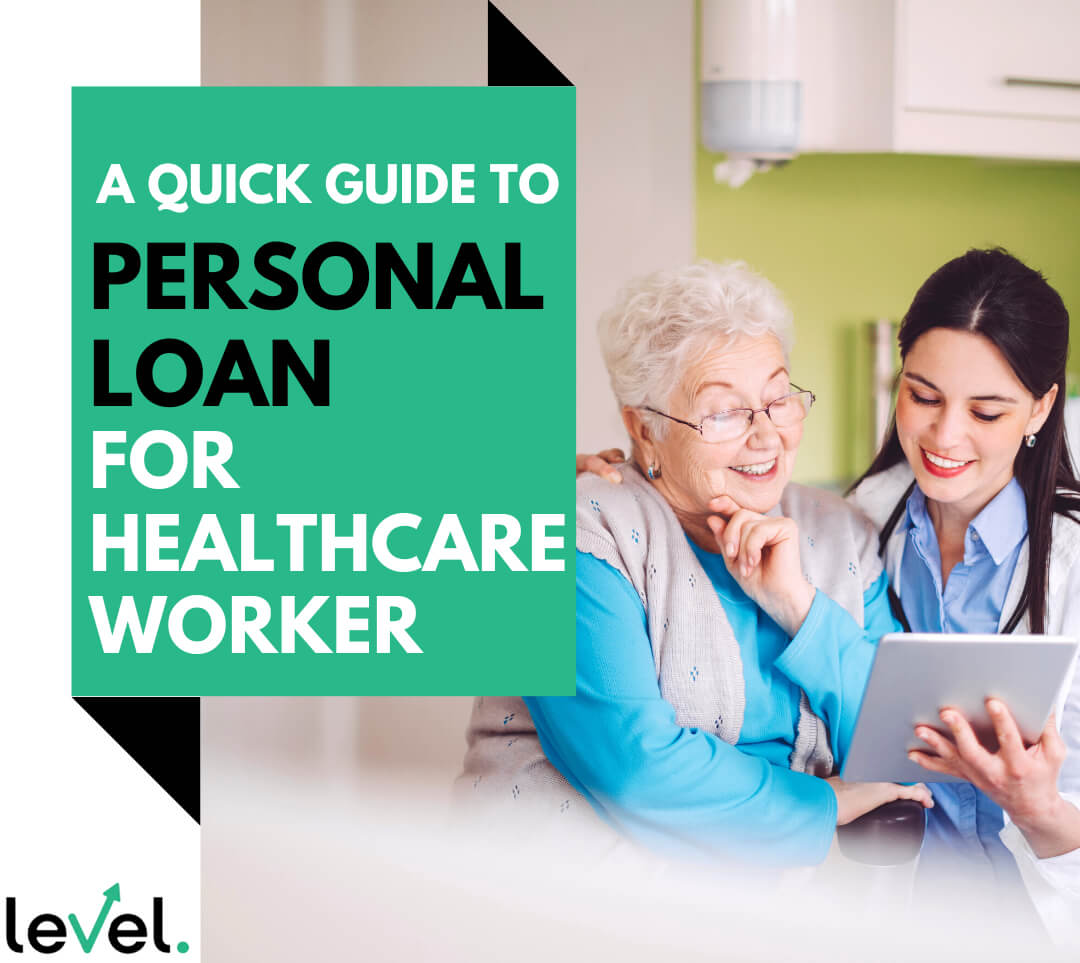
Extending Financial Support for Healthcare Professionals: Exploring Loans Amidst COVID-19 Challenges
COVID-19 has significantly impacted the lives of healthcare workers in America and around the world. Due to the pandemic, doctors, nurses, and similar professionals have had to deal with a higher incidence of
- health problems among hospital staff
- stress, anxiety, and burnout
- social and family problems
- economic challenges
Oftentimes, these issues are usually correlated. For example, health issues can negatively affect your finances, while both these factors can negatively affect your peace of mind and psychological health.
Various forms of assistance were provided by both federal and state authorities as a result of the pandemic. Some federal and state assistance were directed at the general population, while others were directed towards healthcare workers specifically. And while the assistance certainly helped, it only partially compensated for the negative impact of COVID-19 on many workers’ personal finances.
As if the pandemic wasn’t enough, economic growth started slowing down due to additional factors, like the war in Ukraine, which led to pushing energy prices up.
We will discuss how personal loans for medical professionals can help them overcome financial issues and provide much-needed relief. We’ll also help you understand how to qualify for a healthcare worker loan and how to choose the right lender.
HOW HEALTHCARE WORKERS CAN USE MORTGAGE LOANS?
Personal loans can be used for most types of purchases or expenses. Here are some scenarios.
- The pandemic has left a toll on your finances, forcing you to resort to your savings to make ends meet. You were planning to replace your fridge or air conditioner, but it will now take several months to save the necessary amount. Personal loans can help you cover any large purchase. You can then use part of the money you were planning to save each month for the repayment of your loan.
- During the toughest months of COVID-19 outbreak, you might have worked overtime and dealt with critical situations on a regular basis. Your level of stress might have risen considerably. You can’t focus very well at work, and your deteriorating psychological balance is affecting your relationship with your friends and relatives. A relaxing break from work is everything you need right now. Taking out a personal loan can help you cover the cost of a long vacation. This would allow you to recover your energy and peace of mind in a couple of weeks.
- To deal with unforeseen expenses and economic difficulties during the pandemic, you have accumulated significant credit card debt. Due to the high-interest rate on credit cards, it has become increasingly difficult to make regular repayments. A personal loan can help you pay your credit card debt back. You can then repay the new loan at a lower interest and over a longer period of time.
- You are a private practitioner, and your revenues have decreased due to a weakening economy and fewer clients. You were planning to buy new equipment for your medical practice but need funding. A personal loan can be the right solution to finance this investment.
HOW TO QUALIFY FOR A PERSONAL LOAN AS A HEALTHCARE WORKER
Proof of Steady Income
Based on stats published by the Bureau of Labour Statistics (BLS), the median annual wage for healthcare professionals is $75,040. This is above the national average of $45,760. Of course, this number tends to change based on the specific profession. Here is the average annual salary for some positions, based on the same BLS report:
- physicians and surgeons: $208,000
- dentists: $163,220
- nurse anesthetists and nurse practitioners: $123,780
- audiologists: $78,950
- registered nurses: $77,600
- dietitians and nutritionists: $61,650
- laboratory technicians: $57,800
- licenses vocational nurses: $48,070
- opticians: $37,570
In most cases, many professionals have the necessary income to qualify for mortgage loans for healthcare workers. Those with higher income levels may have access to lower interest rates and a higher maximum loan amount.
Debt-to-Income Ratio (DTI)
Your income is important when determining your eligibility for a loan, but lenders are also interested in your current debt situation. Specifically, they want to know which percentage of your monthly income is used to repay debt.
Let’s assume you are a registered nurse who earns $66,000 a year, that is, $5,500 a month. Also, let’s imagine that the sum of your monthly mortgage and credit card repayments amounts to $900.
Here’s how you can calculate your debt-to-income ratio:
- Divide the sum of your monthly debt repayments by your monthly income: 900÷5,500 = 0.1636
- Multiply the result by a hundred: 0.1636 × 100 = 16.36%
In the above example, 16.36% of your monthly income is used to meet debt obligations. This is typically considered a very good debt-to-income score by lenders.
In most cases, a DTI of 36% or less is necessary to qualify for a personal loan for healthcare employees. The lower your DTI, the higher the chances of your personal loan application being approved.
Credit Score
Finally, lenders will look at your current credit (e.g., your FICO score) when determining your eligibility for a personal loan.
Your FICO score can impact:
- whether you qualify under the category of loans for hospital workers
- the interest on your personal loan
- the maximum amount you can borrow
According to Forbes, your FICO score shouldn’t be lower than 600 when applying for a personal loan.
Keep in mind that obtaining a personal loan for care workers will trigger a hard inquiry. This may have a negative short-term impact on your FICO score. However, making regular loan repayments can improve your credit score in the long term. Even more so if you take out a personal loan to consolidate previously accumulated debt.
HOW TO SECURE PERSONAL LOANS FOR HEALTHCARE WORKERS WITH BAD CREDIT?
While some lenders offer personal loans to healthcare professionals with bad credit or with a FICO score lower than 600, it usually means higher interest and lower borrowable amounts.
Here are other options you can look at in this scenario.
- Secured personal loans – These loans are backed by collateral, thus providing additional reassurance to lenders. Collaterals can be both financial (like your savings account) and physical (like a car). Credit checks on these loans are less strict. However, they are also riskier, as you may lose the assets you used as collateral if you cannot repay the loan.
- Guarantor loans – In this case, a second person (like a spouse or parent) will be responsible for repaying your debt if you can’t.
- Credit union loans – Credit unions are nonprofit financial cooperatives. They provide various financial services, including deposits and loans. Requirements for credit union loans are usually less strict than those of commercial lenders. This usually means fewer credit checks and better borrowing costs. However, you need to be a member of a credit union to apply for a loan.
HOW DO I SELECT THE RIGHT LENDER FOR PERSONAL LOANS FOR HEALTHCARE WORKERS?
Here are the main elements to consider when looking for the right provider of personal loans for health care workers.
Attractive Interest Rate
Your FICO score and DTI ratio aren’t the only things affecting the interest rate you will pay on your loan. All other things being equal, rates vary considerably from lender to lender. Therefore, don’t be too hasty when choosing your loan provider. Search the web and compare interest rates from various banks and online lenders, be sure to look at their fees or any other hidden costs.
Low Fees and Additional Costs
Interest rates are not the only costs you will incur when taking out a personal loan. Various fees may apply, including:
- application fee
- origination fee
- late payment fee
- payment protection insurance
These also vary considerably from lender to lender. For example, some lenders charge no application fee whatsoever, while others charge up to $50. Origination fees can range from zero to 8%, depending on the loan provider.
Analyze all the different fees charged by each provider. Some may be less noticeable at first and require you to read the terms and conditions carefully. Get a full overview of the total borrowing cost (interest + fee) for each personal loan provider before choosing the right one.
High Maximum Amount
Different banks and institutions also have different caps on the total sum that you can borrow with a personal loan for healthcare workers. For most lenders, this sum is between $40,000 and $50,000. Some personal loan providers offer an even higher maximum amount.
For example, Level Lending allows you to borrow up to $55,000. Being able to borrow large sums is very helpful in certain scenarios. This could be the case of a private doctor who wants to renovate his office or purchase new equipment. Or of any healthcare worker planning multiple personal expenses over the course of the next few years.
Easy Application Process
Lastly, look for personal loans without complicated or energy-consuming application processes. On Level Lending’s website, you can quickly enter your data and desired loan amount and receive a quick loan offer in no time. The staff will help you determine the best options for your needs, as well as assist you through the steps of the application procedure.







Sorry, the comment form is closed at this time.